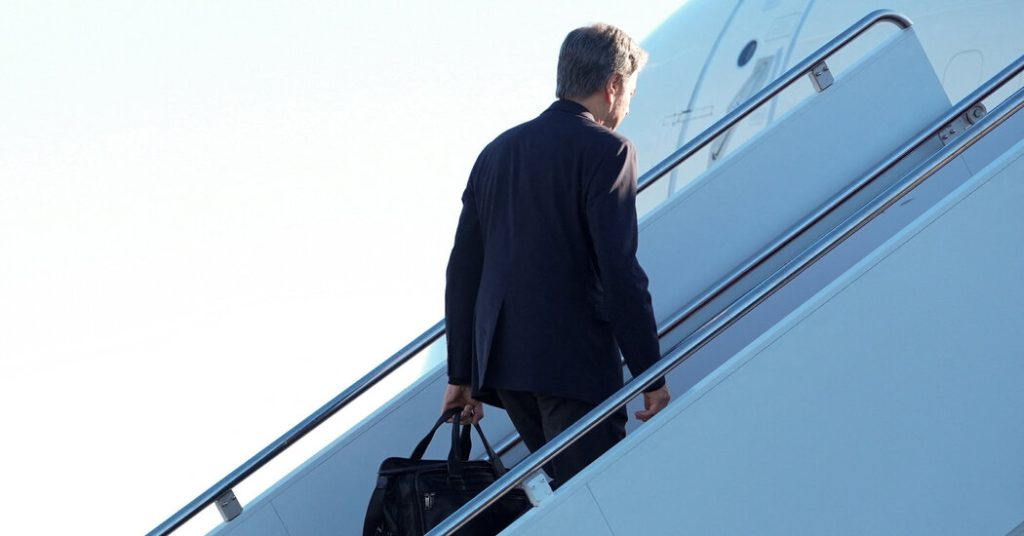During Secretary of State Antony J. Blinken’s upcoming trip to China, tensions between the United States and China are at risk of escalating due to various issues such as trade, territorial disputes, and national security concerns. Blinken’s visit comes amid the passage of a bill by the U.S. Senate that provides $8 billion to Taiwan and the Indo-Pacific region, potentially leading to a nationwide ban on the Chinese-owned TikTok app. Additionally, the approaching presidential election in the U.S. has both Democrats and Republicans competing to appear tough on China, with the potential for former President Donald Trump to reverse recent efforts to stabilize the relationship.
During Blinken’s visit, he plans to address a wide range of issues including China’s support for Russia, trade imbalances, and aggressive behavior in the South China Sea. Chinese officials are expected to raise concerns about U.S. support for Taiwan and trade restrictions they view as discriminatory. Blinken is set to meet with China’s foreign minister, Wang Yi, but it is uncertain if he will have an audience with President Xi Jinping, as he did on his last visit in June. Despite a recent thaw in U.S.-China relations, tensions are on the rise due to various factors such as Western concerns about China’s support for Russia in Ukraine and trade disputes involving electric vehicles and solar panels.
Taiwan remains a particularly sensitive issue in the U.S.-China relationship, especially as the island prepares to inaugurate a new president viewed by Beijing as an advocate for Taiwanese independence. Chinese defense officials have emphasized the country’s uncompromising stance on Taiwan, adding to the existing tensions between the two nations. Within the United States, anti-China rhetoric is expected to heighten as both political parties seek to demonstrate toughness on China, creating further strain on the relationship. The recent developments and negative trends in the U.S.-China relationship have led to concerns about the future direction of the bilateral ties.
Both the U.S. and China have reasons to seek to prevent escalating tensions, with the U.S. asking for China’s assistance in restraining Iran’s hostilities with Israel and China hoping to avoid additional tariffs from the U.S. Yet, public opinion in both countries is hardening, leaving little room for diplomatic flexibility. The potential for further deterioration in the relationship is significant, with experts warning that even small additional factors could push the situation over the edge. Despite efforts to stabilize relations, the delicate balance between the two superpowers remains fragile, with multiple challenges on the horizon that threaten to disrupt the recent progress made in U.S.-China ties.


